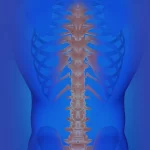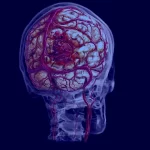
06
Unmasking the Thief of Memories: Understanding and Combating Korsakoff’s Psychosis Syndrome
Korsakoff’s psychosis syndrome, also known as Korsakoff’s syndrome or Korsakoff’s disease, is a neurological disorder that results from a thiamine (vitamin B1) deficiency.
Causes
This deficiency is often caused by chronic alcohol abuse, inhibiting the absorption of Thiamine and interfering with its metabolism. However, it can also be caused by other factors such as malnutrition, gastrointestinal disorders, or cancer.
Symptoms
A range of cognitive and neurological symptoms, including memory loss, confabulation, and difficulty with balance and coordination; vision problems such as double vision or difficulty with eye movements; personality changes such as apathy, lack of initiative, or emotional instability, characterize Korsakoff’s psychosis syndrome.
Diagnosing
Diagnosing Korsakoff’s psychosis syndrome can be challenging, as the symptoms can be similar to other neurological disorders or conditions. In addition to a physical exam and medical history to identify any potential risk factors for thiamine deficiency, blood tests are used to measure thiamine levels in the body. To confirm a diagnosis of Korsakoff’s psychosis syndrome, cognitive tests are performed to evaluate a person’s memory, attention, and other cognitive functions. Imaging tests such as MRI or CT scans can also rule out other conditions that may be causing the symptoms.
Treatment
The primary treatment for Korsakoff’s psychosis syndrome is thiamine replacement therapy, which involves administering high doses of Thiamine to reverse the deficiency and improve neurological function. In addition, Thiamine may be administered intravenously in severe cases to ensure rapid absorption and maximum effectiveness. People with Korsakoff’s syndrome may also benefit from cognitive rehabilitation therapy, which involves working with a therapist to develop strategies for managing memory loss and other cognitive symptoms. It may also include learning new skills or techniques to compensate for deficits in cognitive function.
Prevention
The best way to prevent Korsakoff’s psychosis syndrome is to ensure adequate thiamine intake through a healthy diet that includes thiamine-rich foods such as whole grains, nuts, and legumes. In addition, thiamine supplements may be recommended for people at risk of thiamine deficiency, such as heavy drinkers or those with gastrointestinal disorders.





Comments are closed.